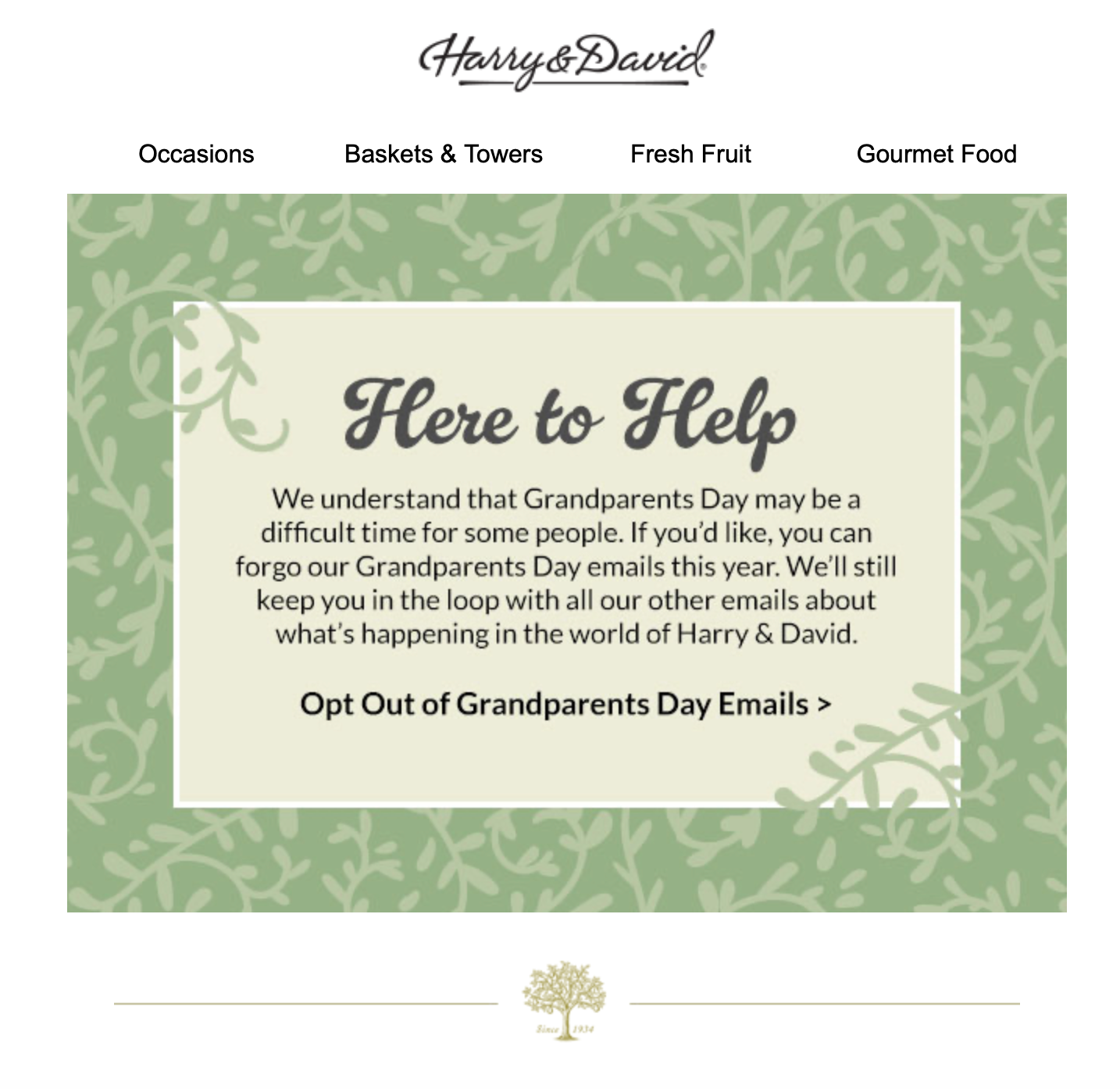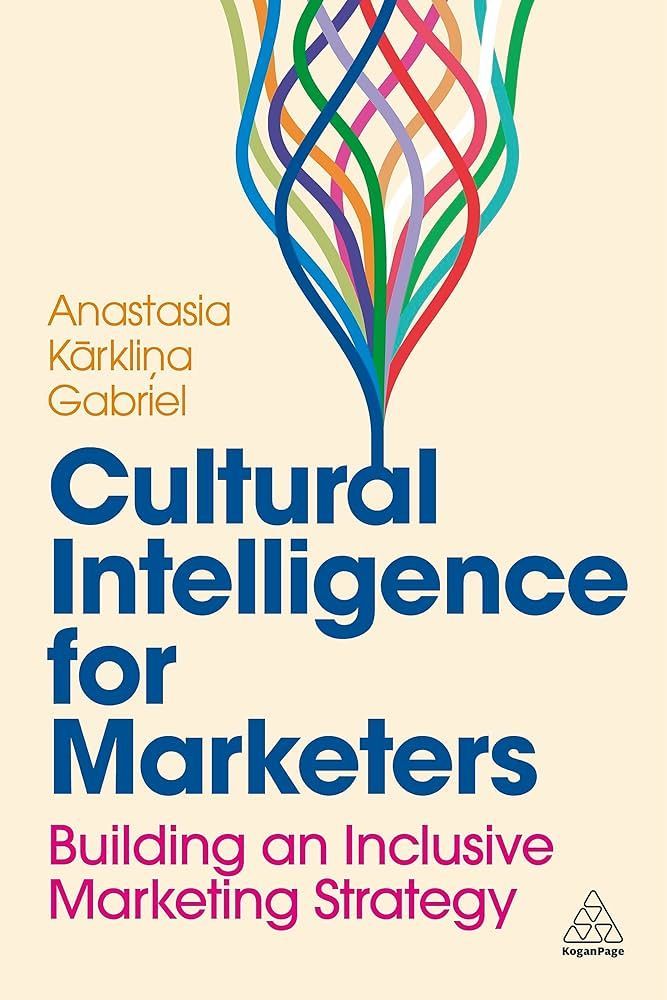Harry & David's Opt-Out Email: A Shining Example of Trauma-Informed Marketing
In an era where consumer inboxes are constantly flooded, Harry & David's recent email campaign stands out as a beacon of thoughtful, trauma-informed marketing. Their approach to Grandparents Day communications demonstrates a deep understanding of customer needs and experiences, going beyond mere sales tactics to truly prioritize customer well-being.
The email in question offers customers the option to opt out of Grandparents Day-related content, acknowledging that this holiday may be a difficult time for some individuals. This simple yet powerful gesture embodies several key principles of trauma-informed practice:
- Recognition of Diverse Experiences: By stating "We understand that Grandparents Day may be a difficult time for some people," Harry & David shows awareness that seemingly joyous occasions can be sources of pain for others.
- Empowerment Through Choice: Offering an opt-out option empowers customers to control their interactions with the brand, a fundamental aspect of trauma-informed care.
- Transparency: The company clearly explains the implications of opting out, allowing customers to make informed decisions.
- Maintaining Connection: Even while offering the opt-out, Harry & David reassures customers they'll still receive other communications, preserving the overall relationship.
- Creating Emotional Safety: By proactively addressing potential triggers, the company creates a safer emotional space for its customers.

This approach goes beyond standard marketing practices. It demonstrates an understanding that customers are individuals with complex lives and experiences, not just data points or potential sales. By acknowledging potential sensitivities and offering solutions, Harry & David positions itself as a brand that truly cares about its customers' well-being.
Moreover, this strategy likely enhances customer loyalty and trust. In showing such consideration, Harry & David may actually strengthen its relationships with customers who appreciate this level of thoughtfulness.
For other marketers, this serves as an excellent example of how to balance business goals with genuine customer care. It shows that it's possible – and indeed, beneficial – to incorporate trauma-informed principles into marketing strategies.
In conclusion, Harry & David's email is more than just good marketing; it's a step towards more ethical, customer-centric business practices. As consumers become increasingly aware of and appreciative of such approaches, we may see more companies following suit, leading to a marketing landscape that is not just more effective, but also more compassionate and considerate of diverse human experiences.




